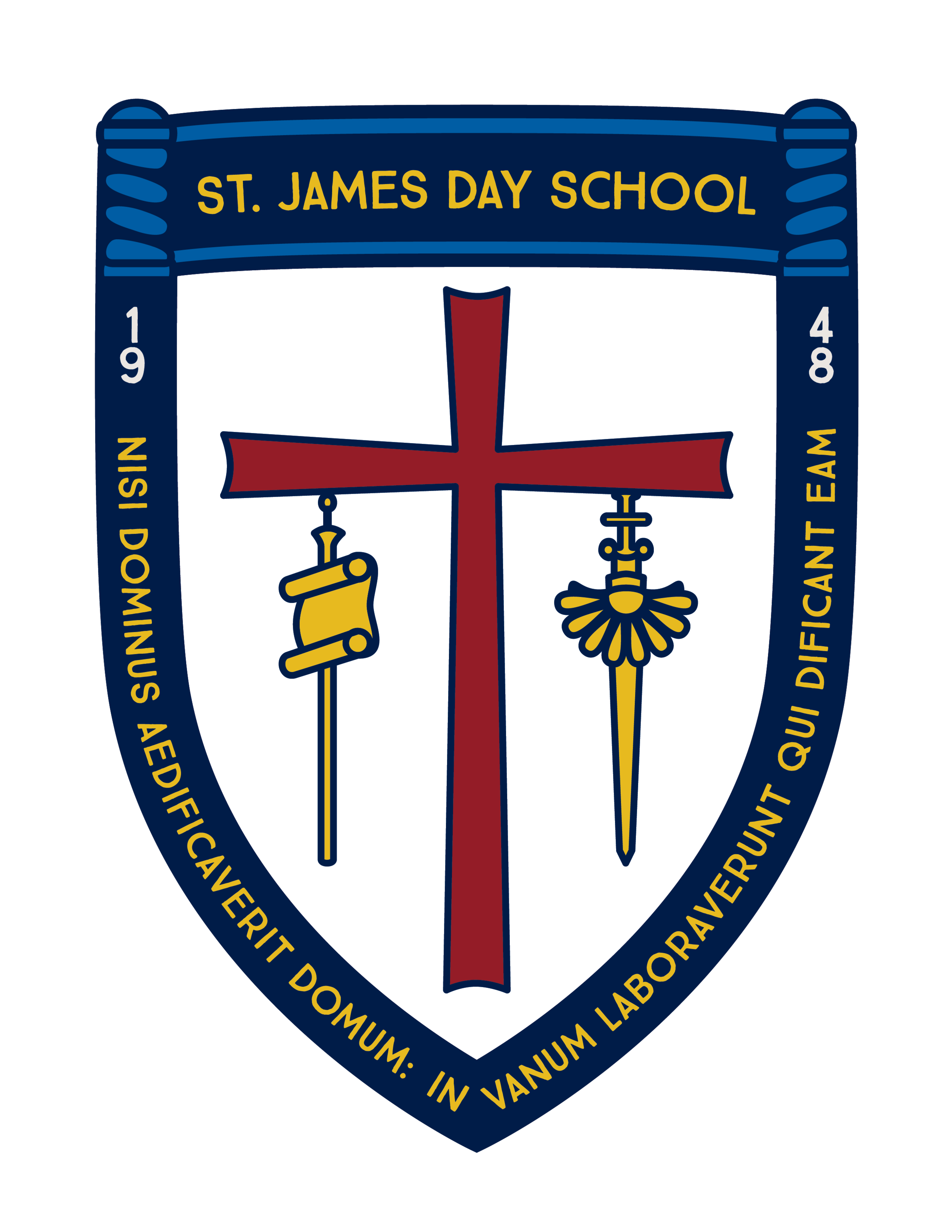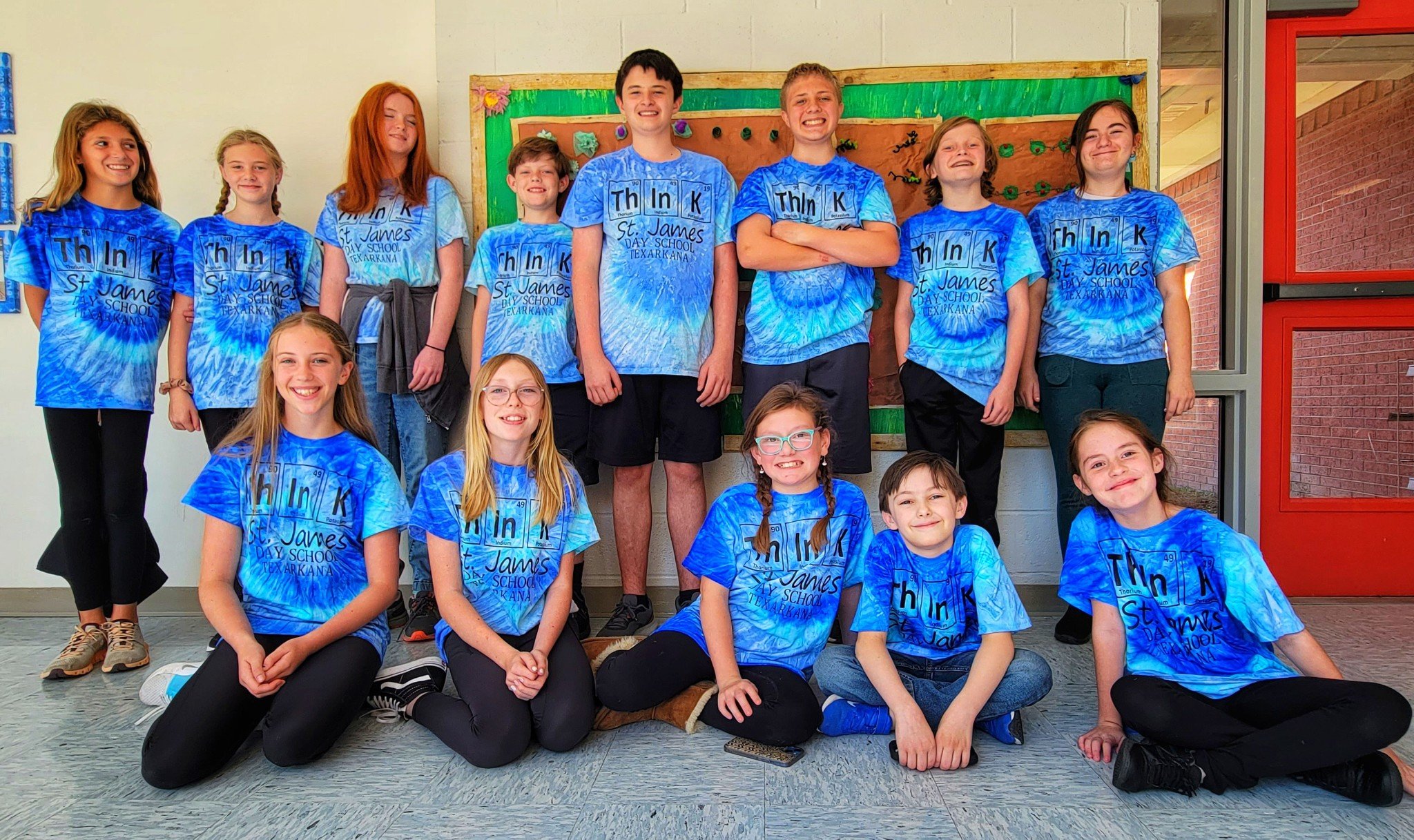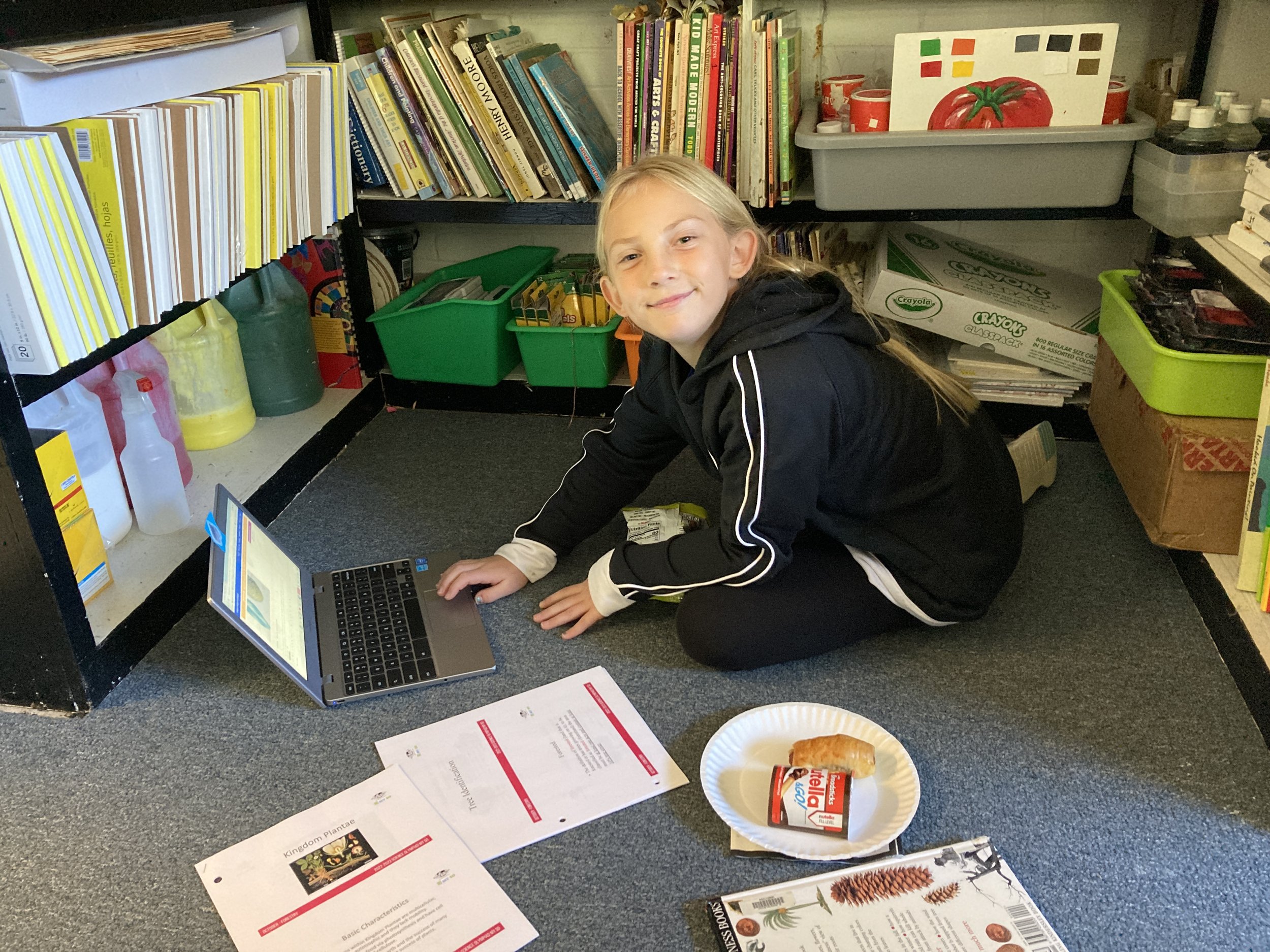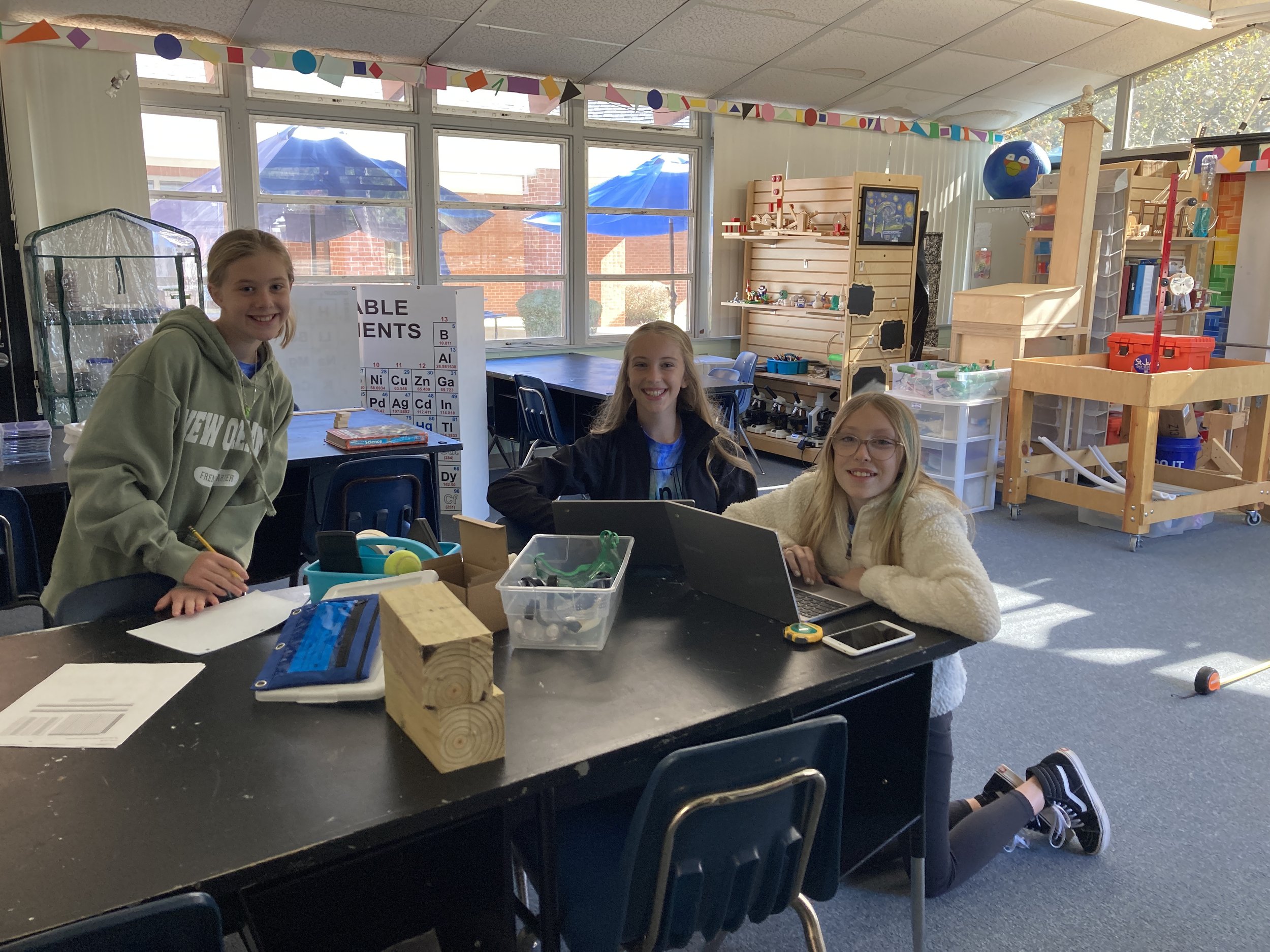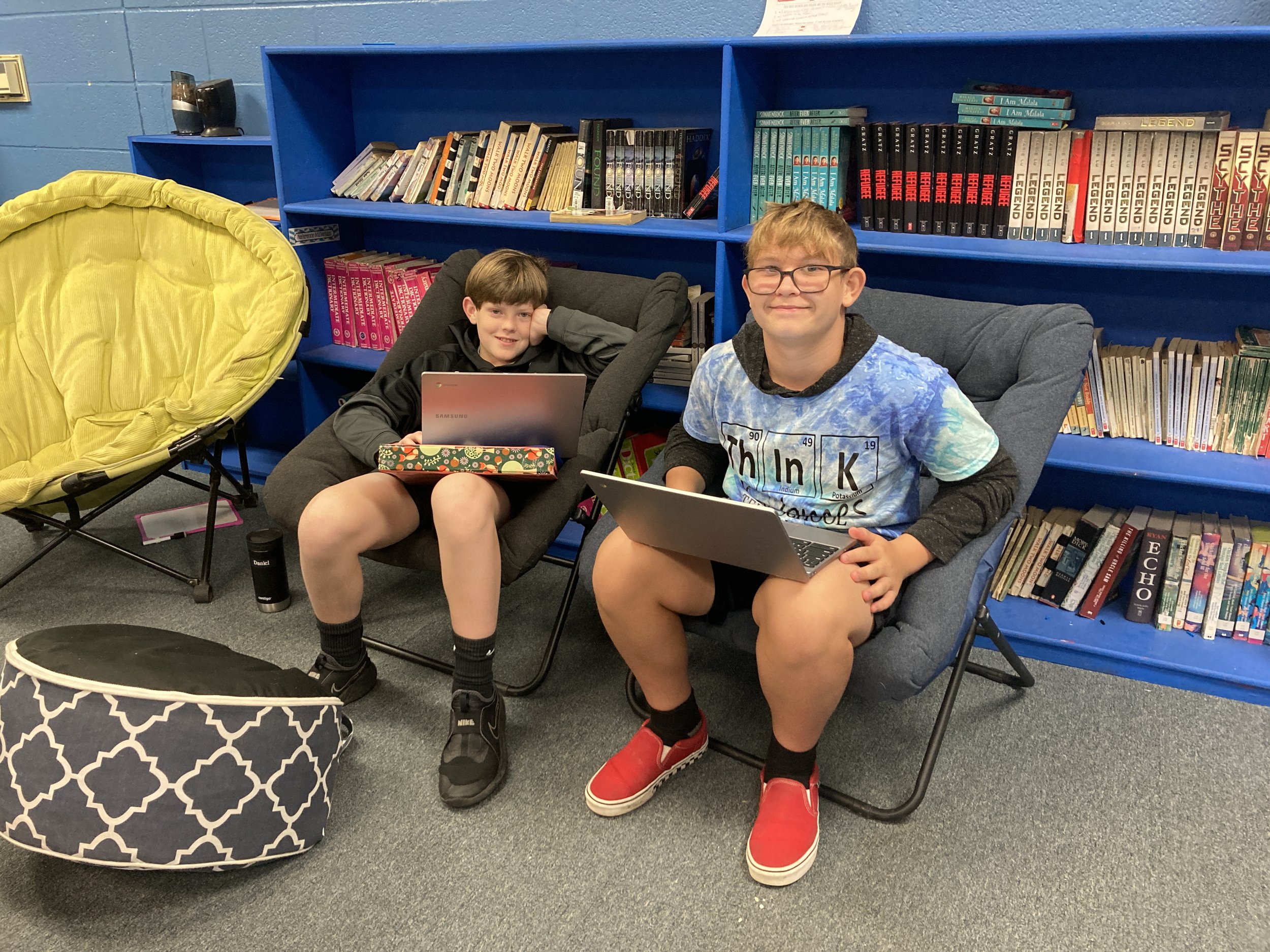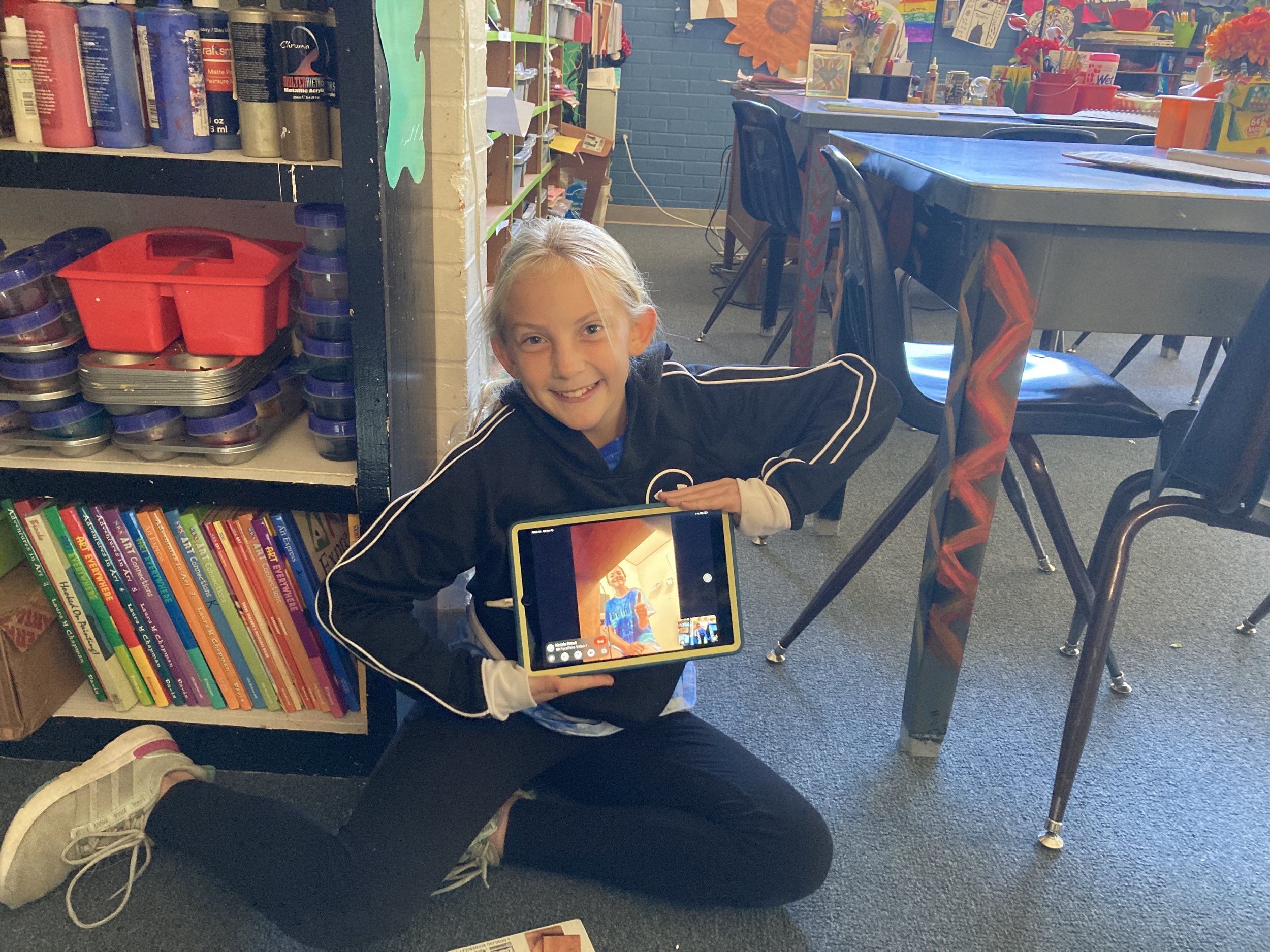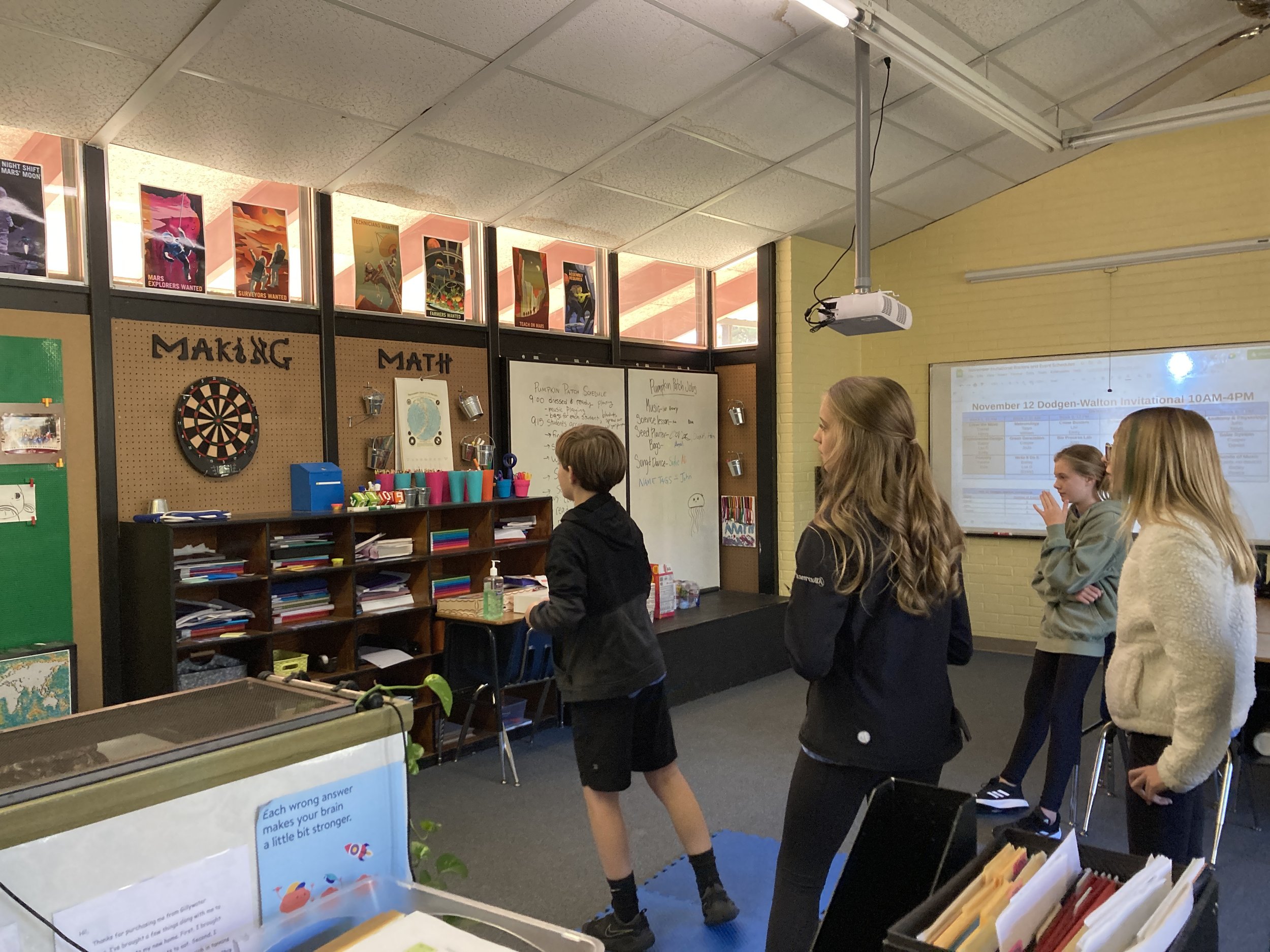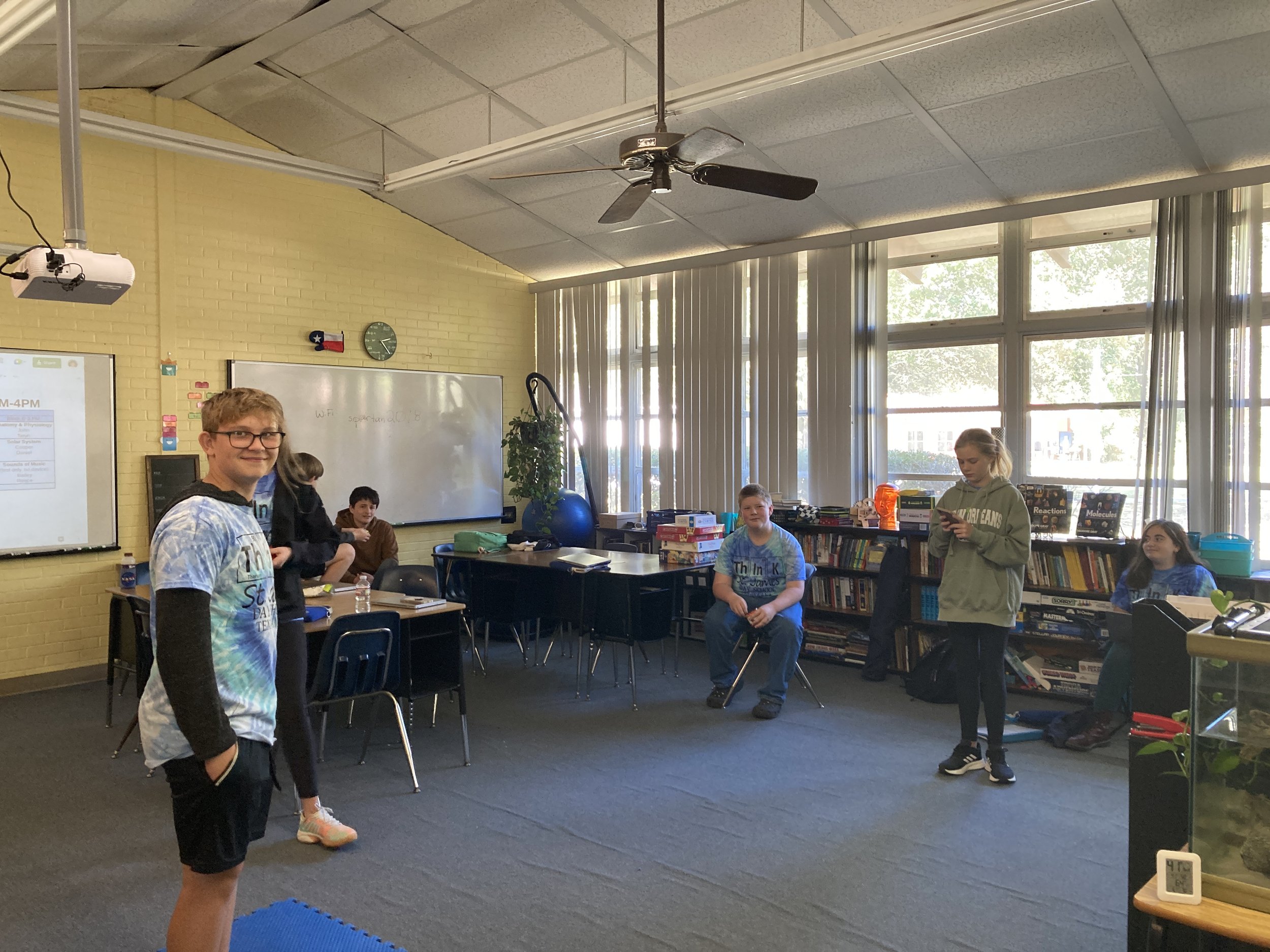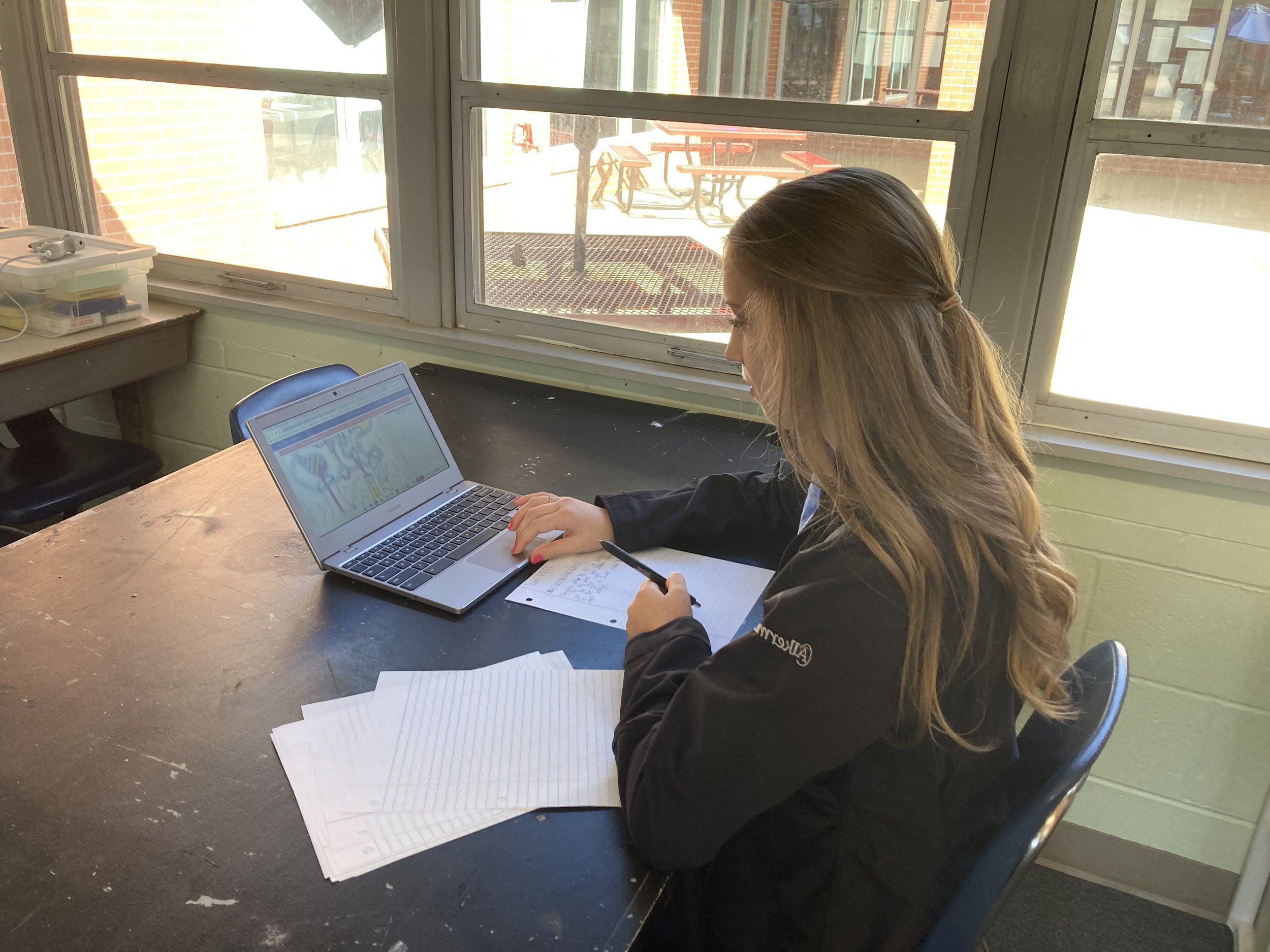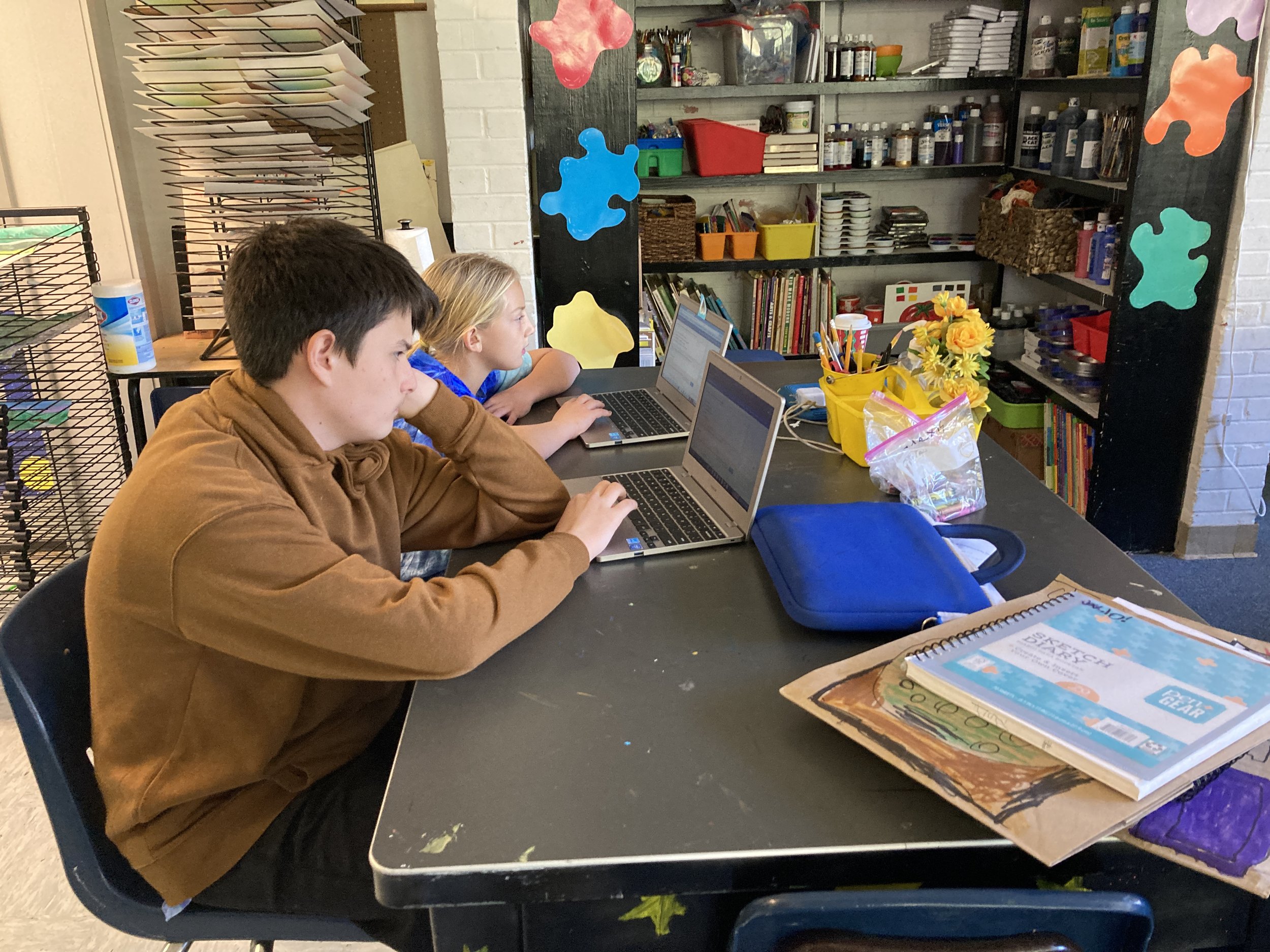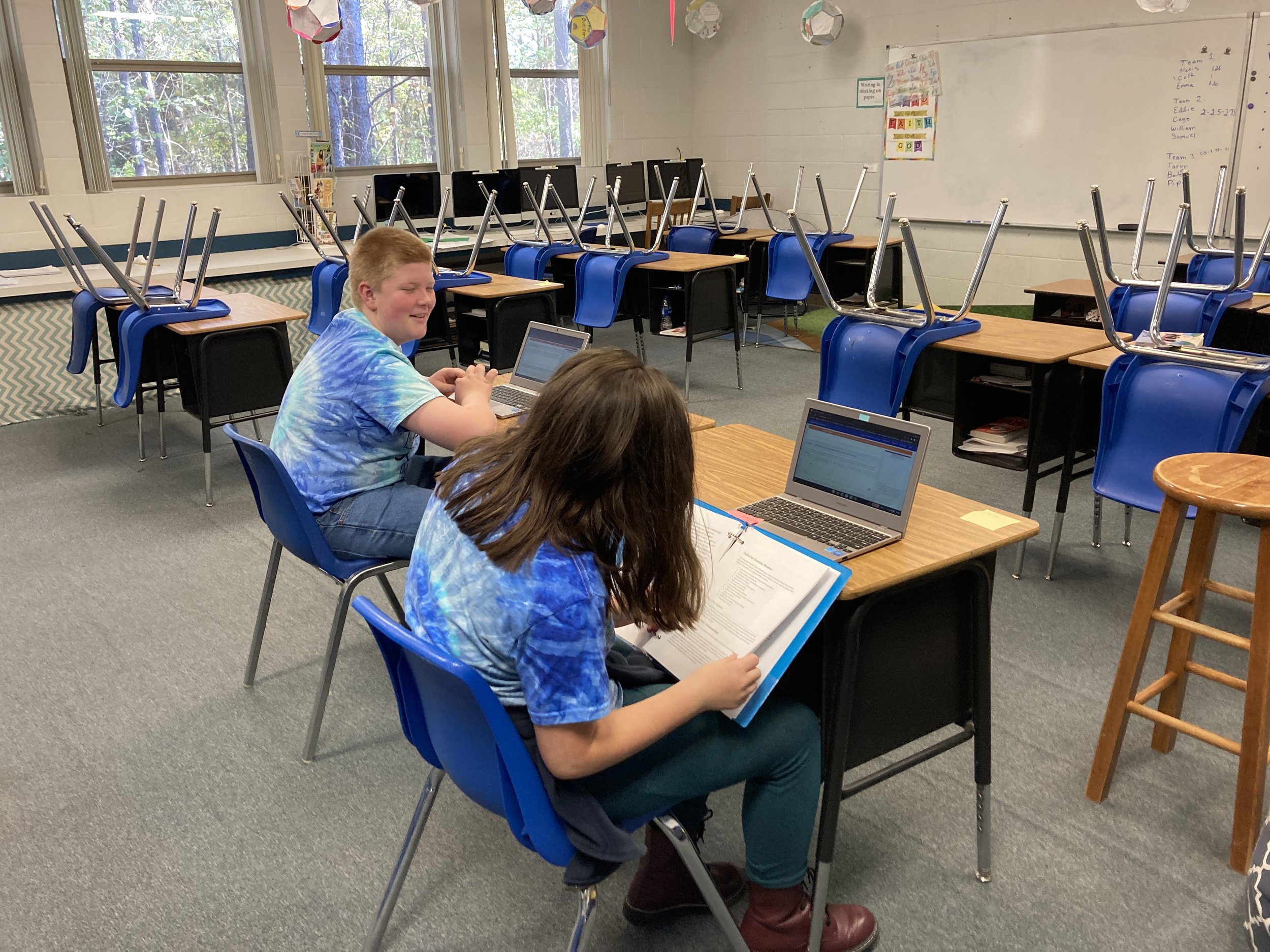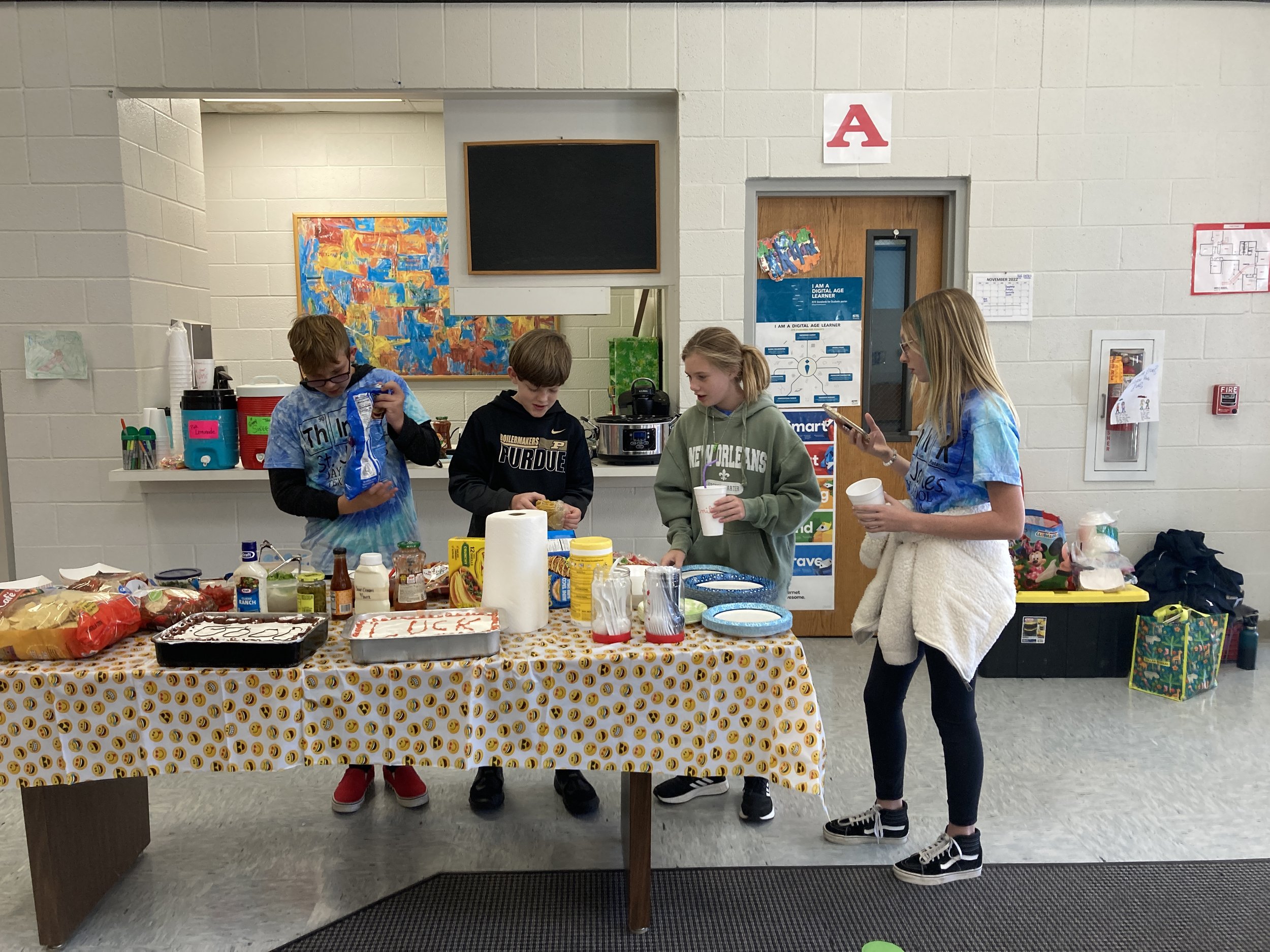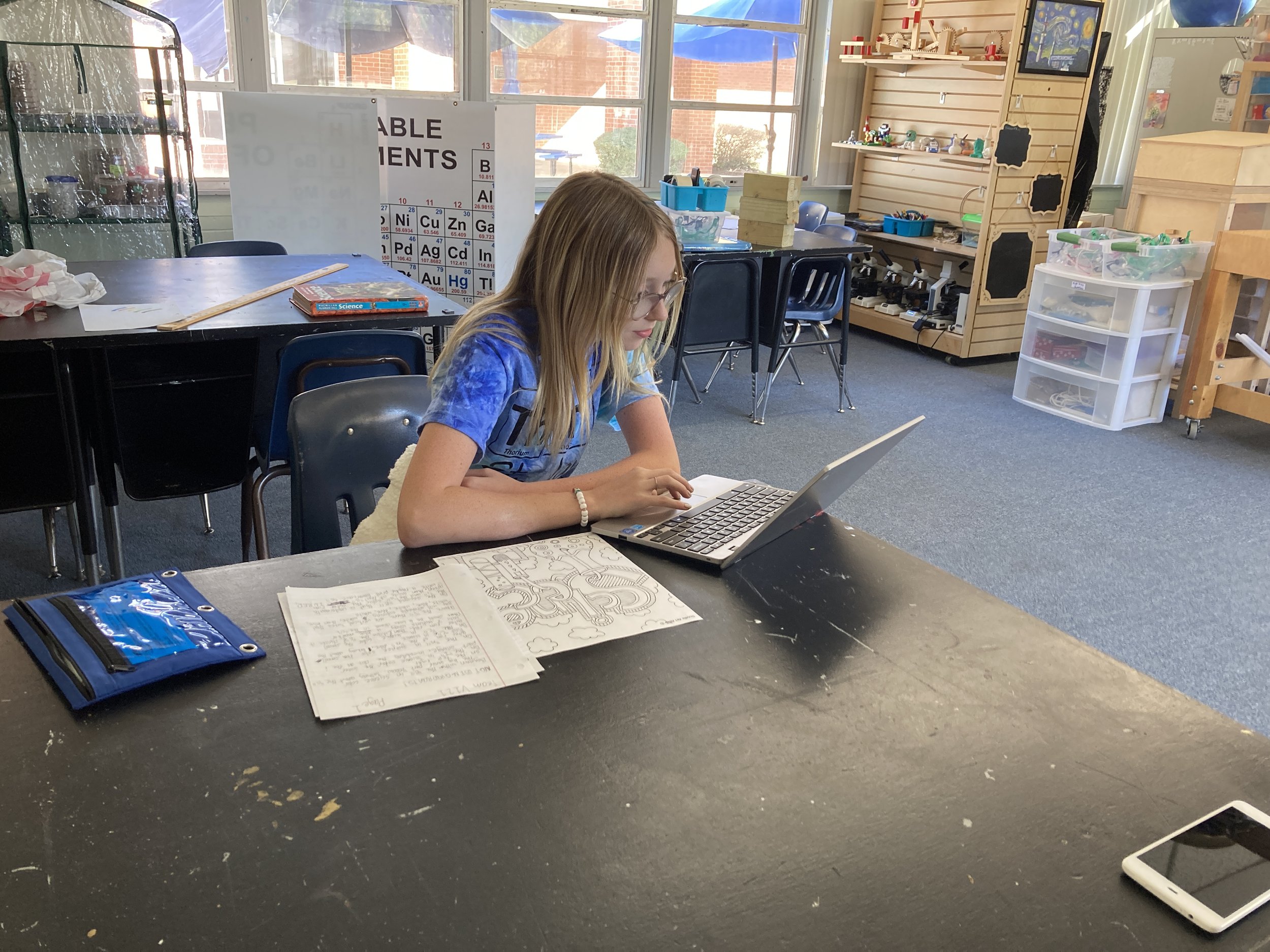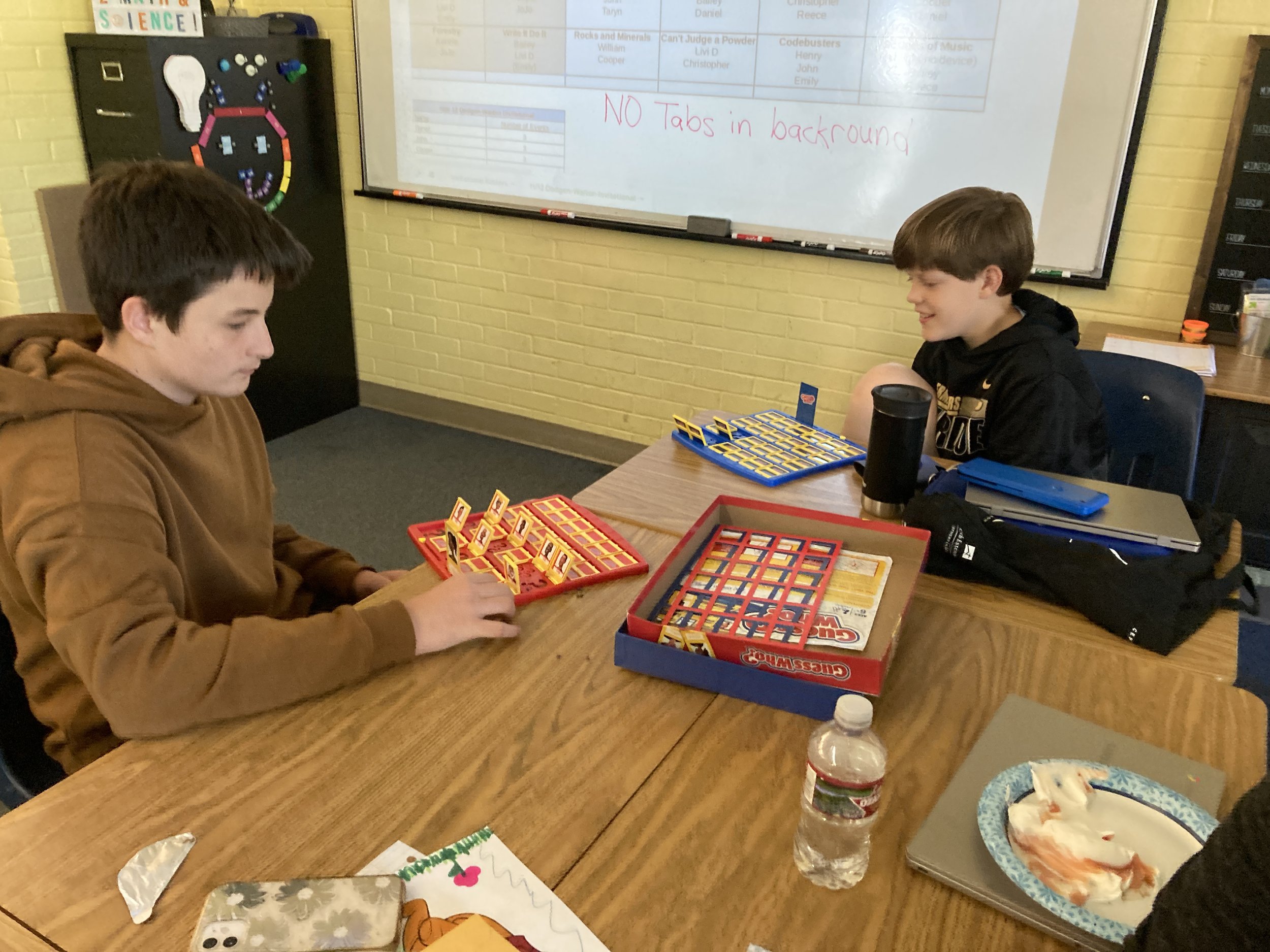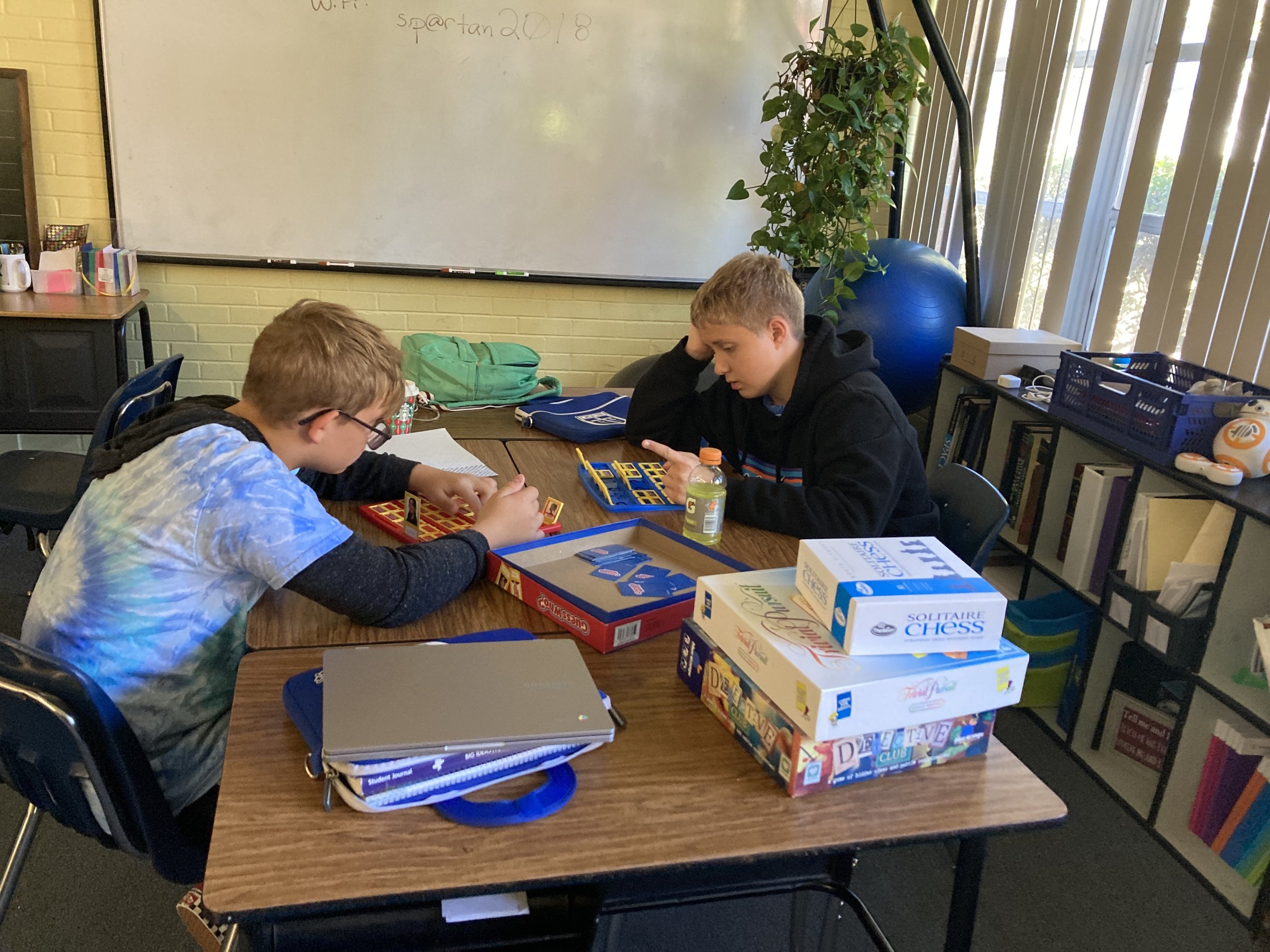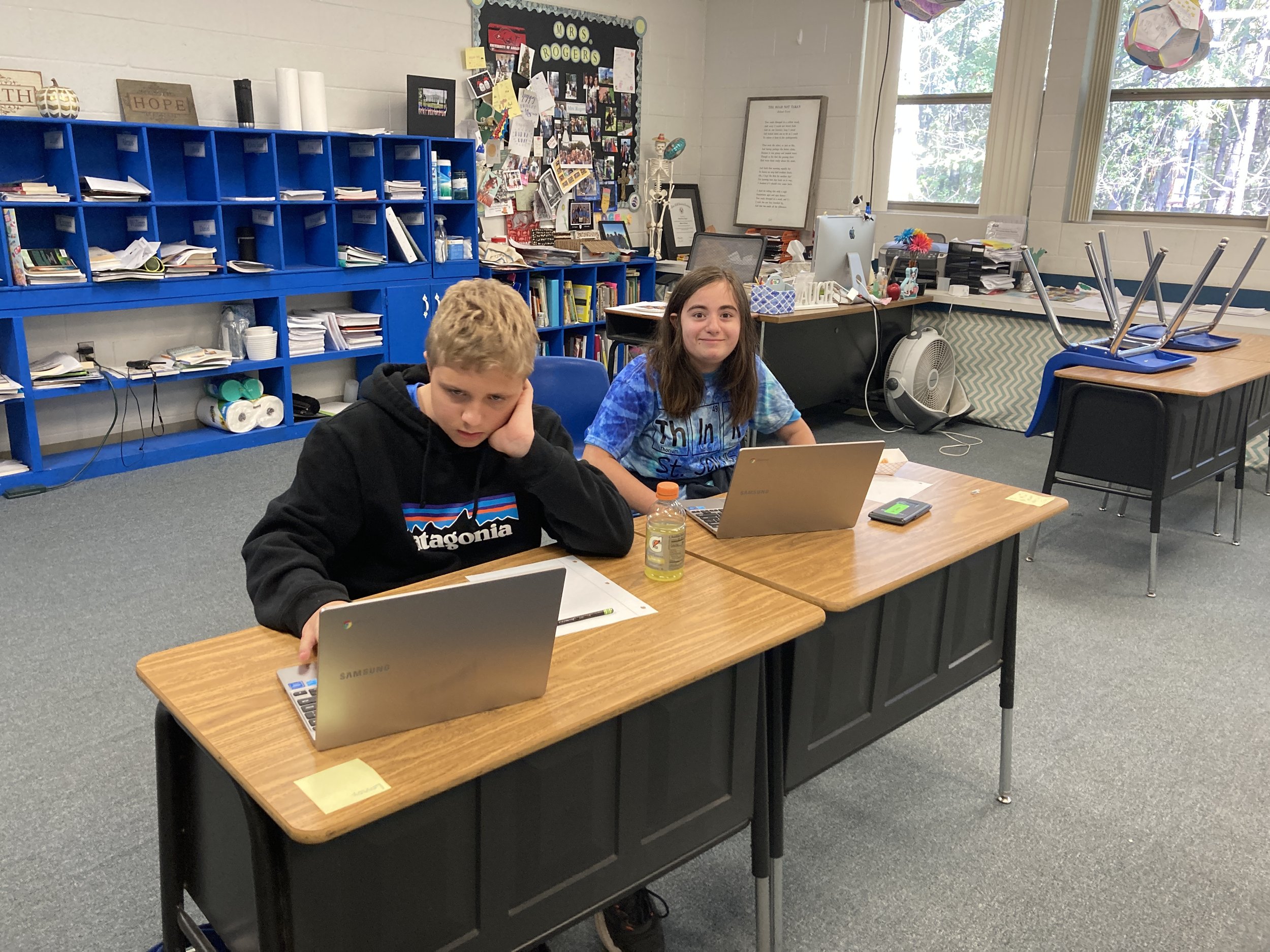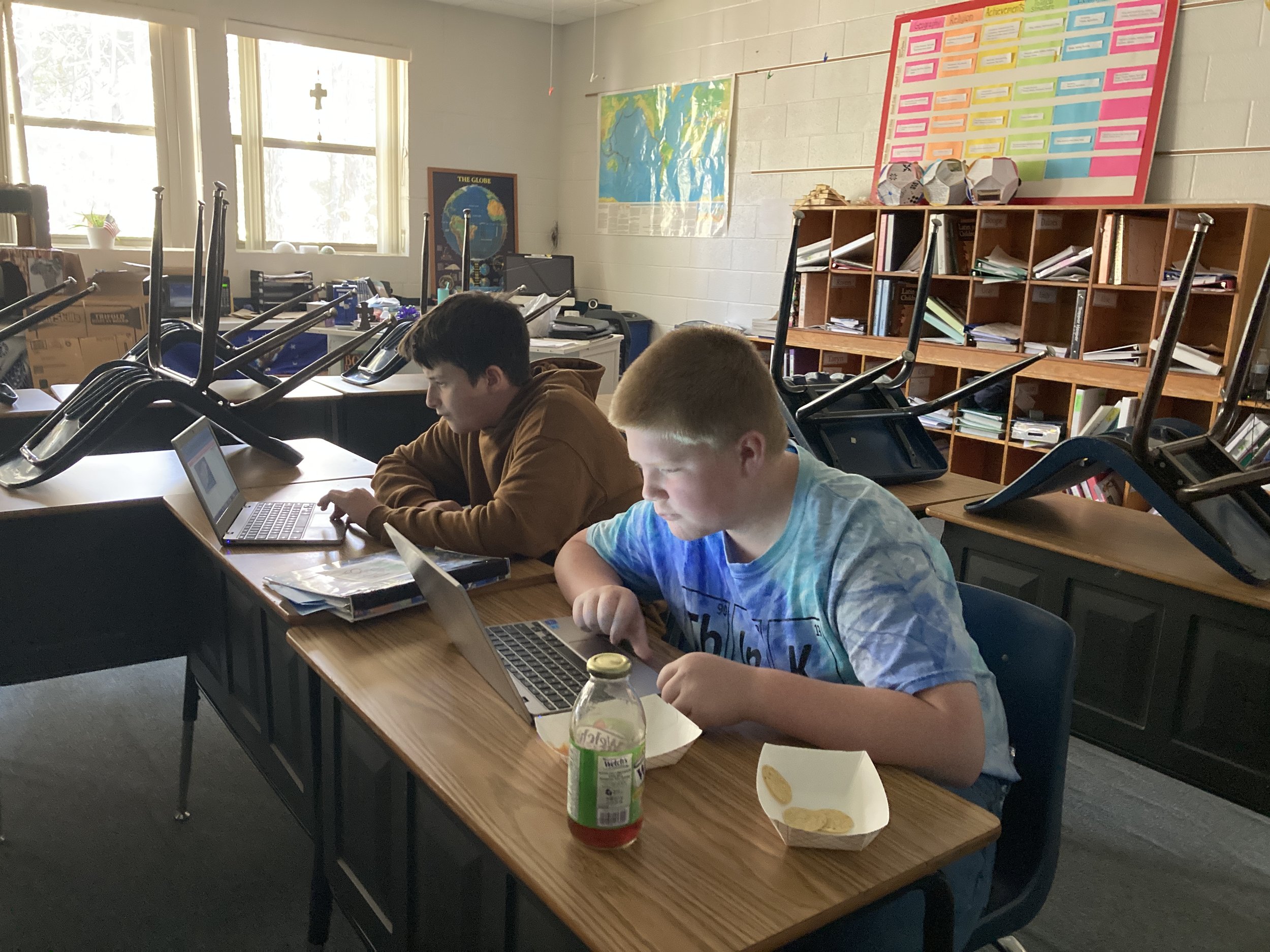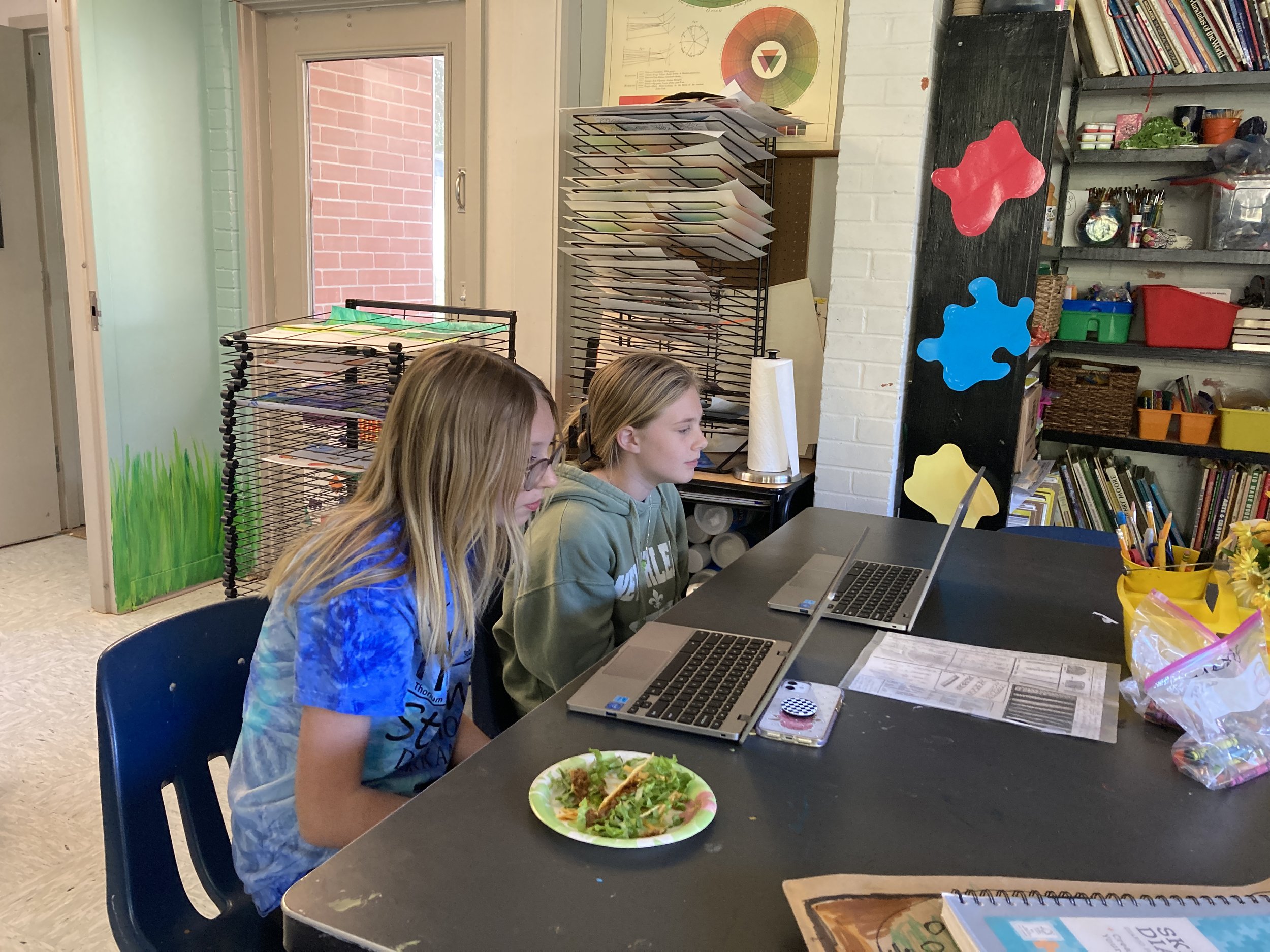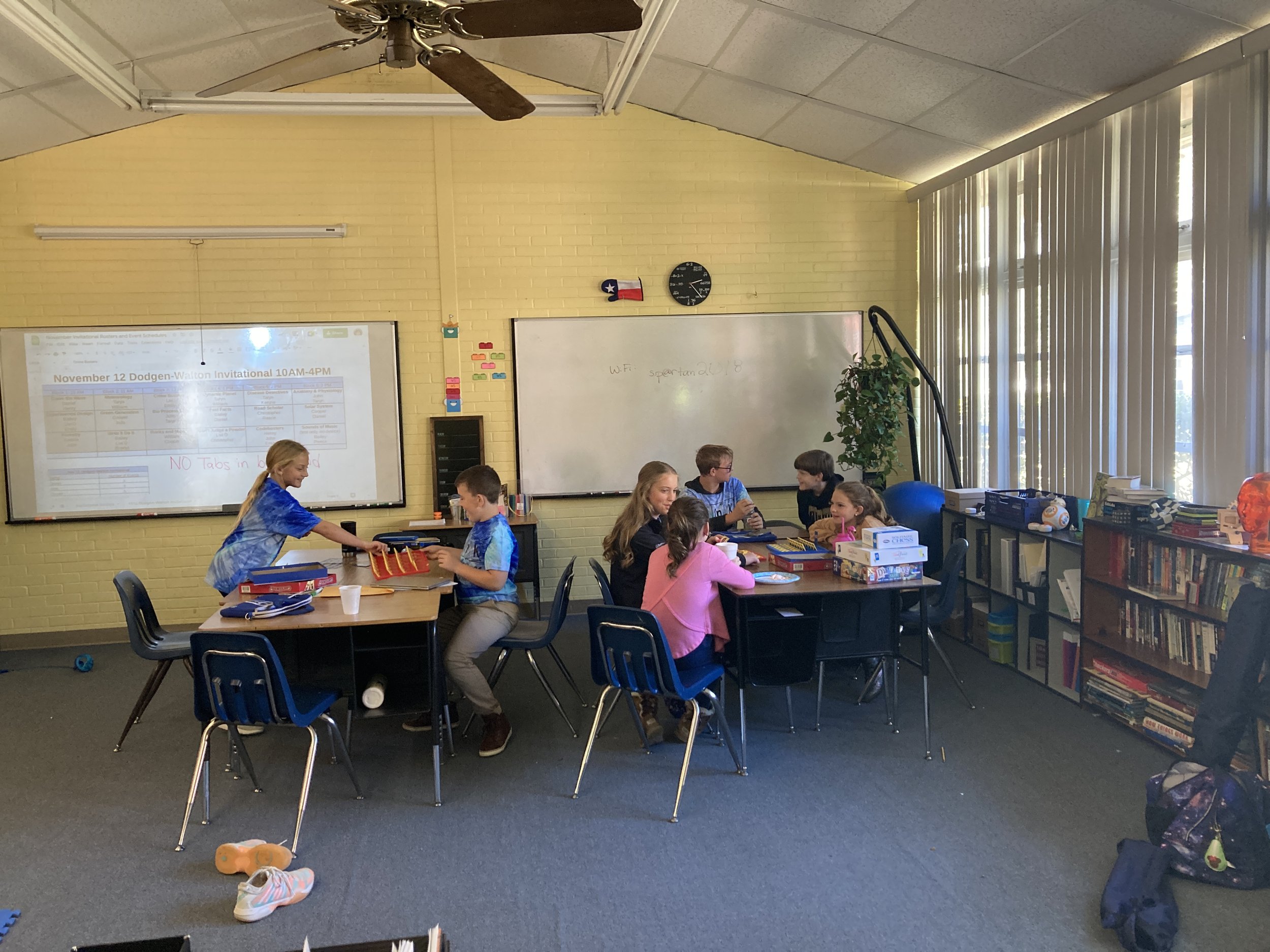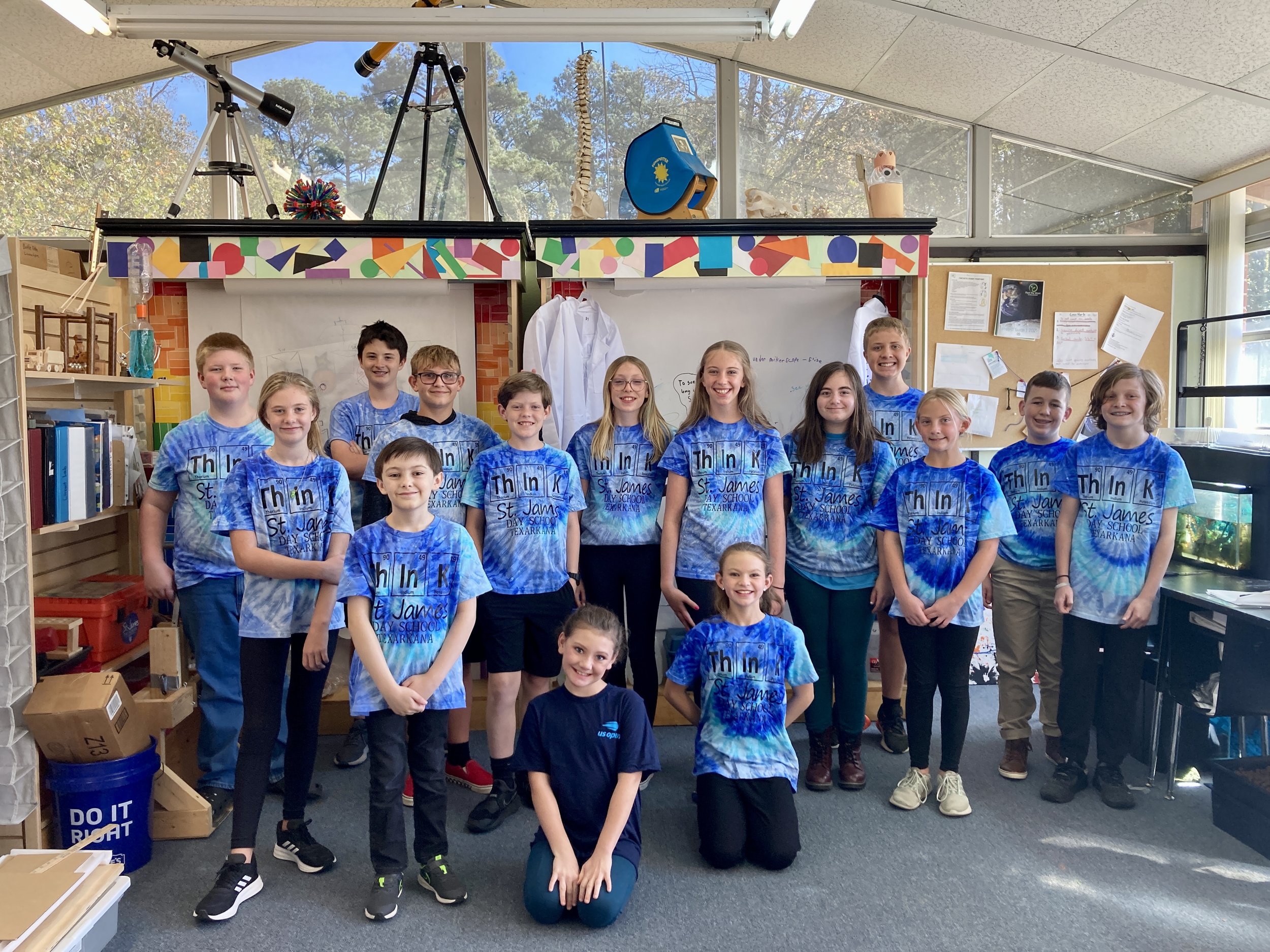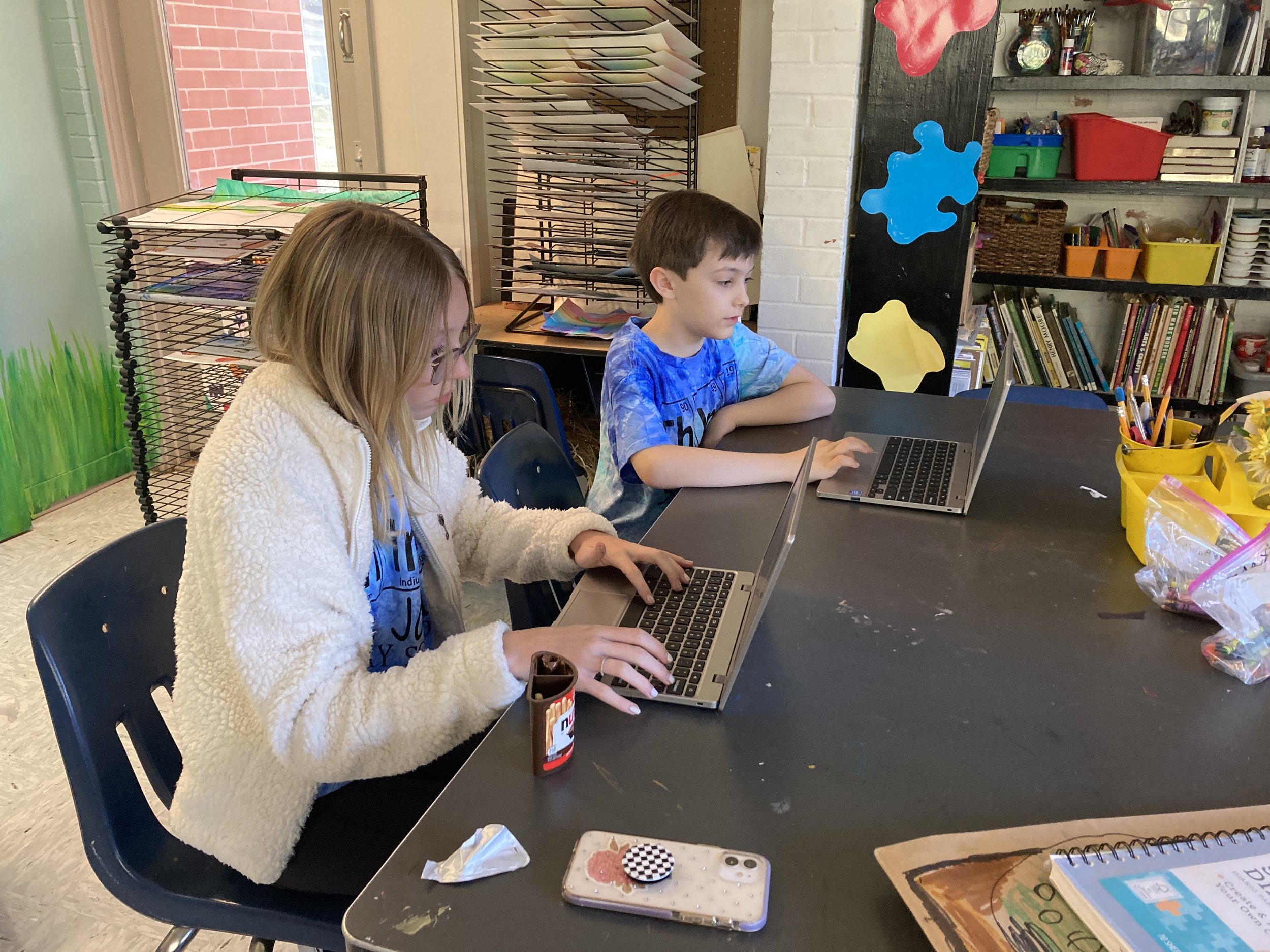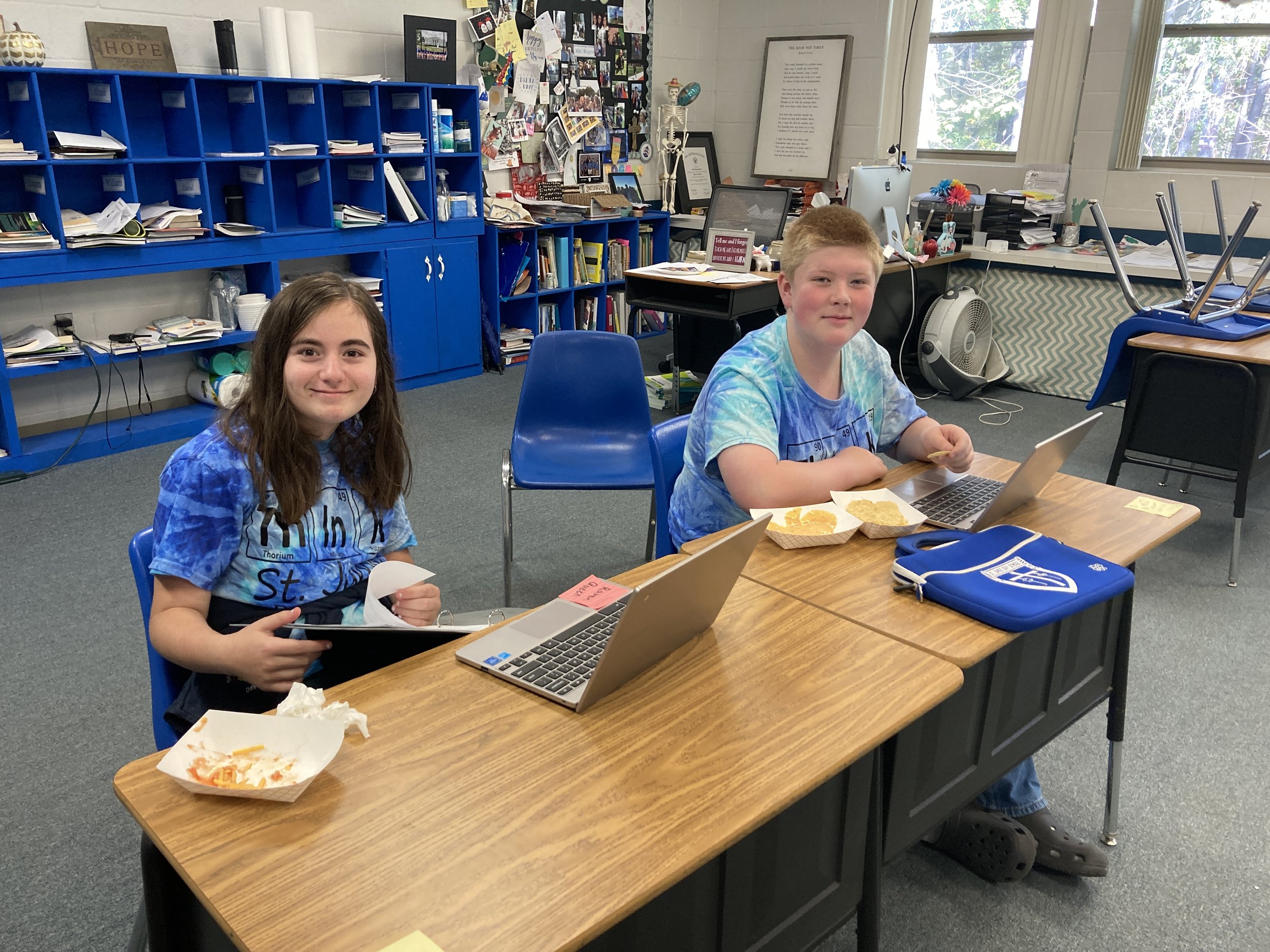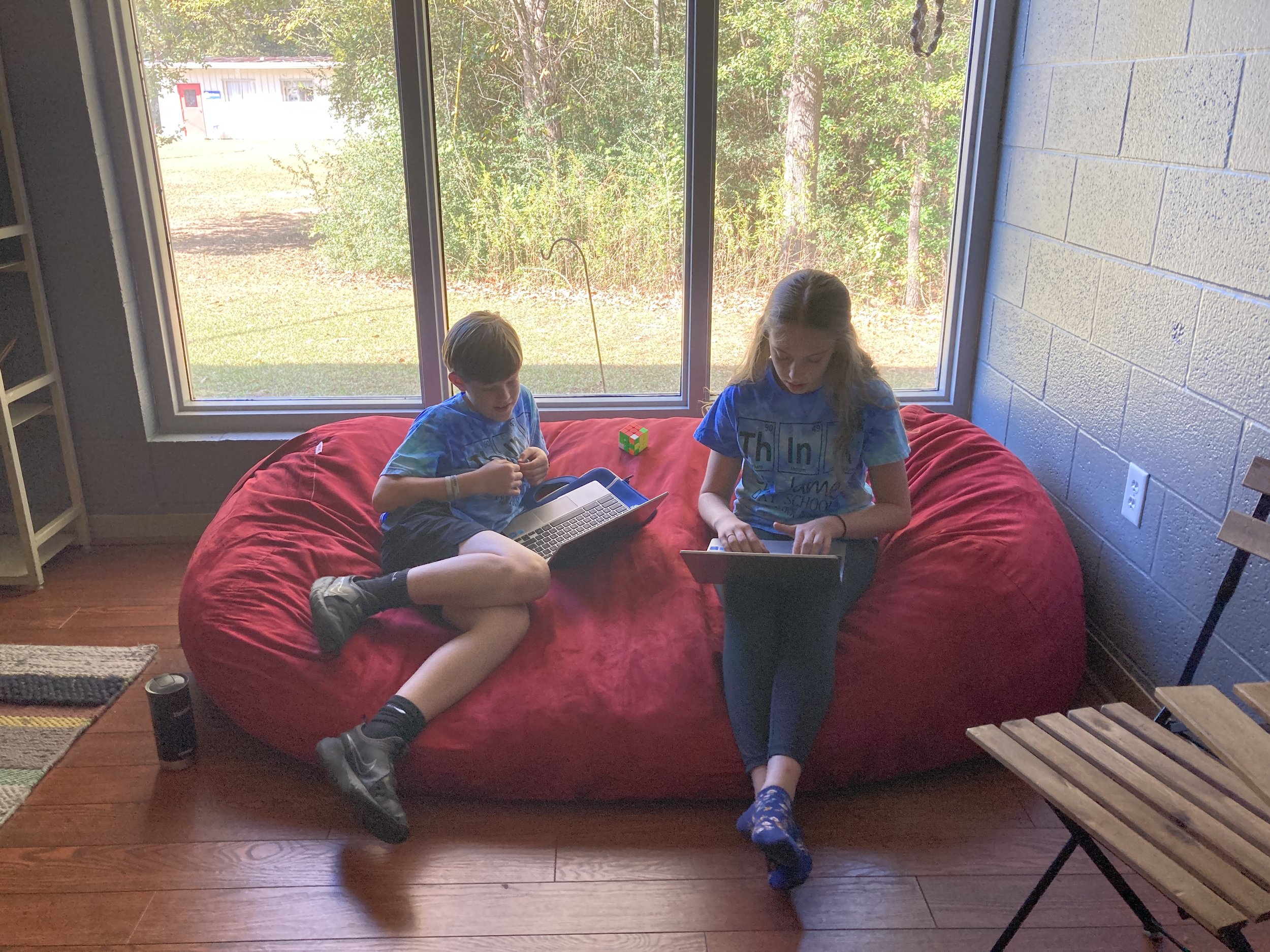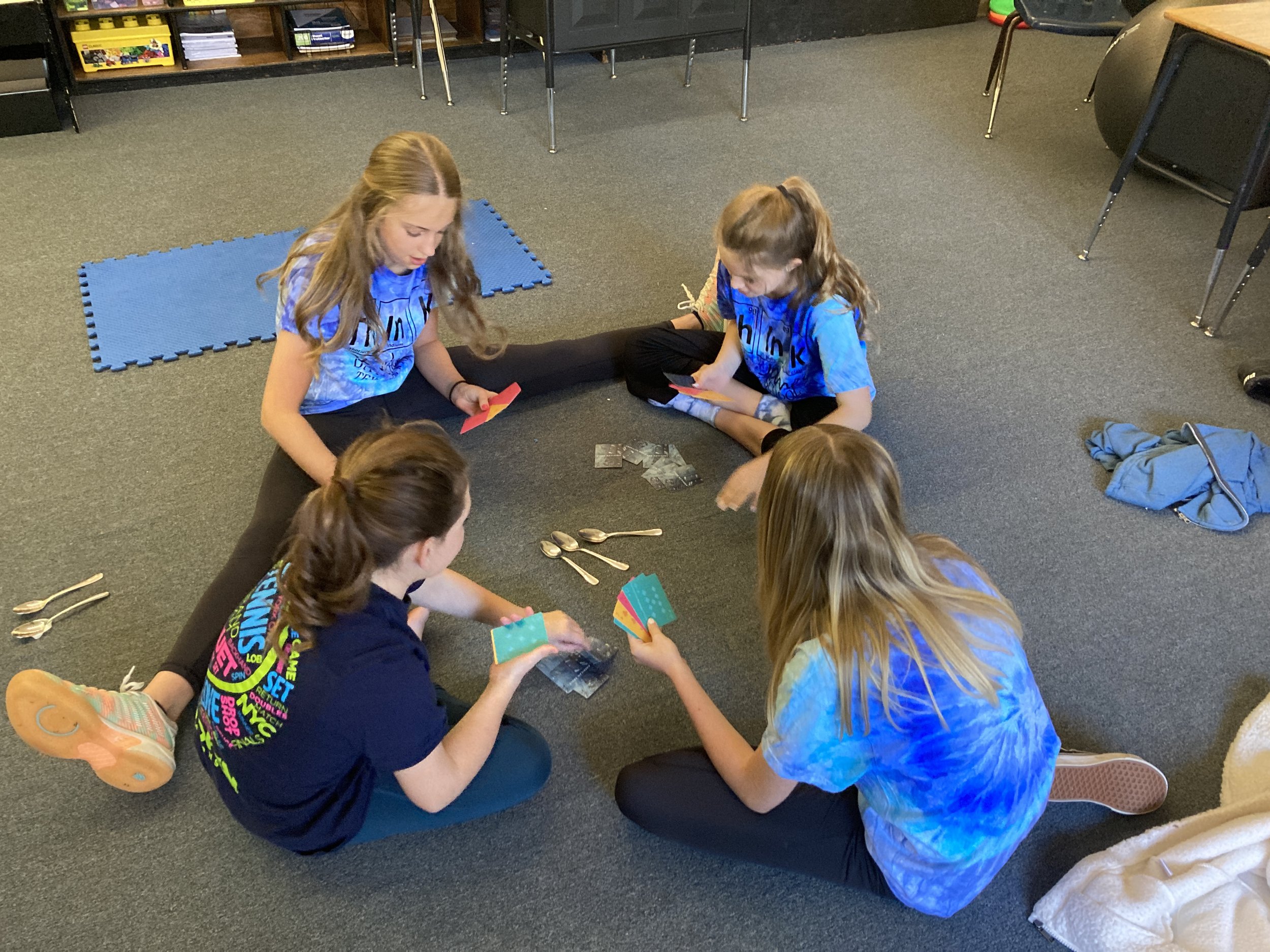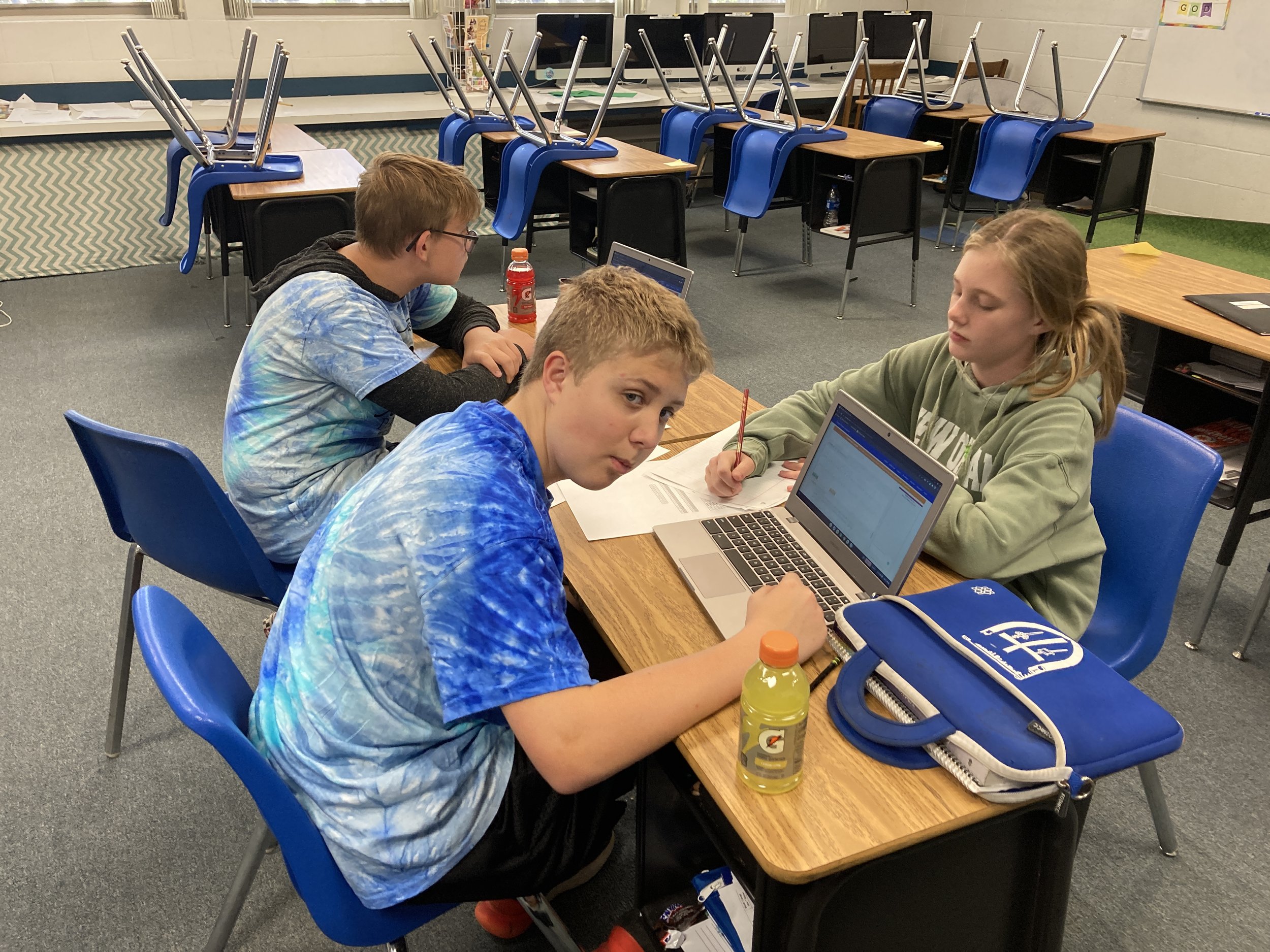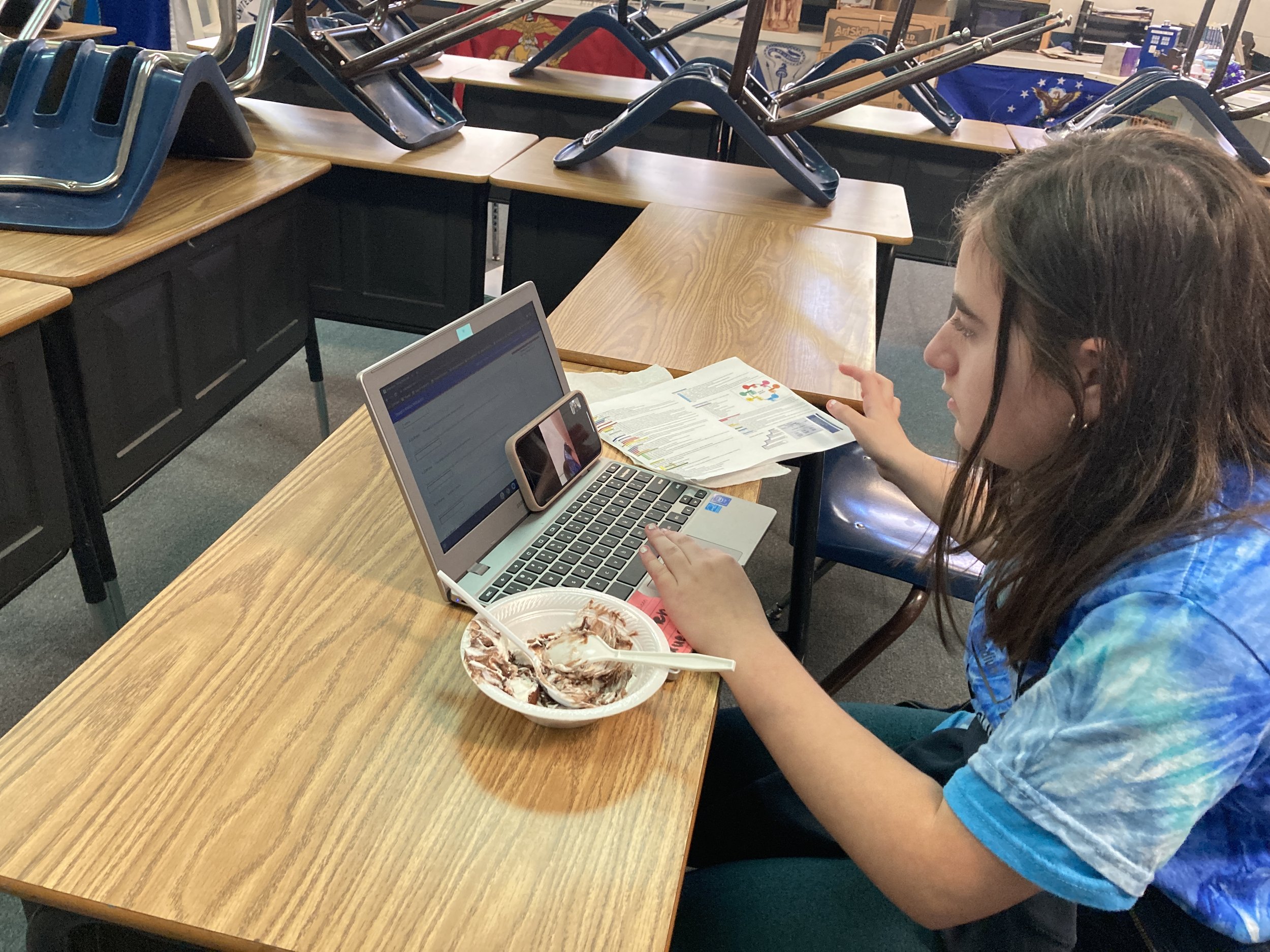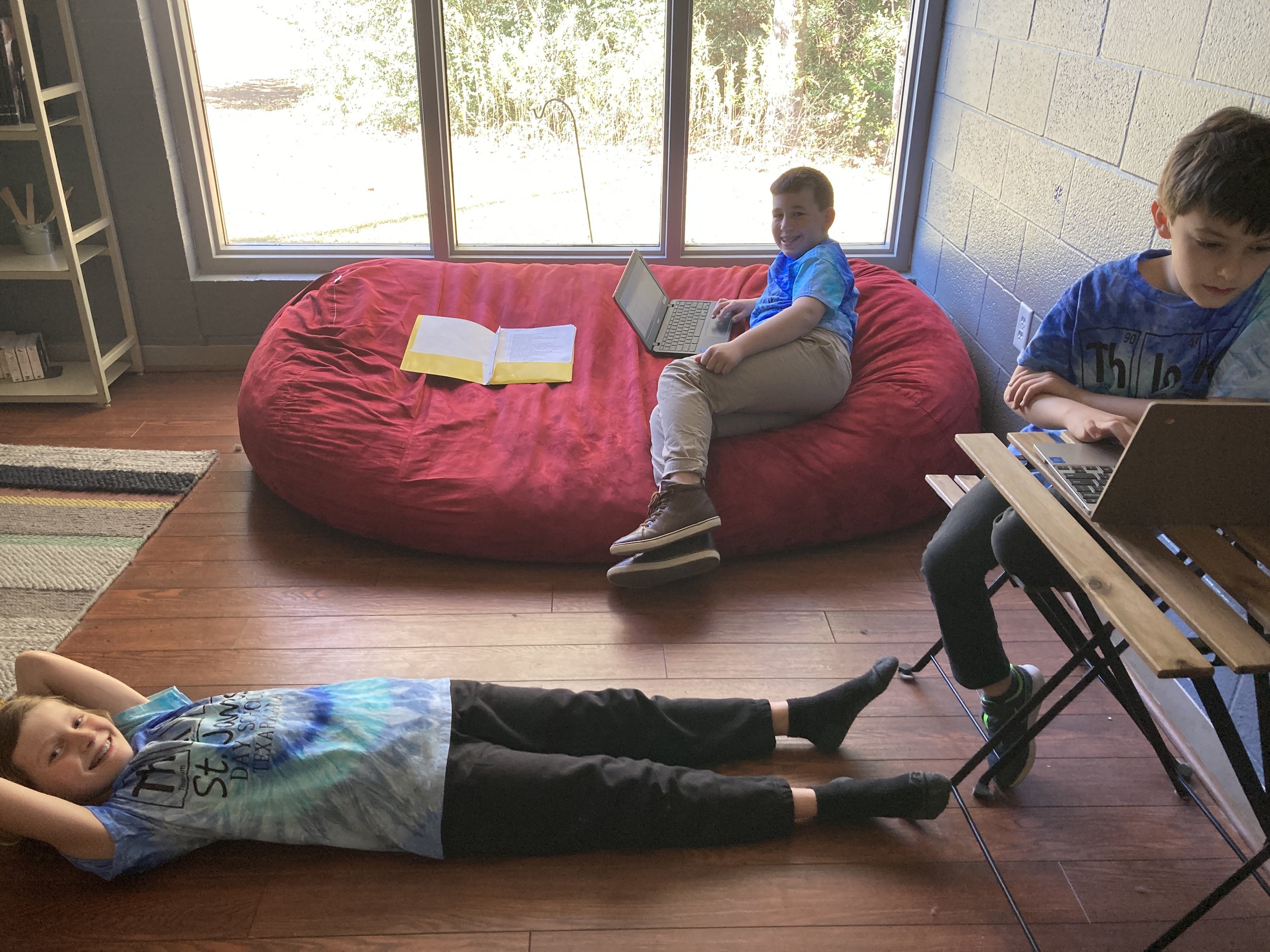by Jennifer Jordan
Fifth graders have learned 9 chapters of Latin vocabulary and grammar concepts so far, with a fair number of quizzes under their belts. Basic individual review is an essential study skill, and I encourage students to test their knowledge on their own. However, group review offers a variety of benefits— the opportunity to challenge yourself against your classmates, show what you know and figure out what you might not know, and of course, move around the room. We enjoy a few different review games— old-fashioned flyswatter which pits students against each other at the board to “swat” the board with the correct Latin term; the digital Blooket game in which students answer vocabulary questions to collect points, toys, or another token and amass as much as possible within a time limit, and vocabulary match up, wherein students receive a few Latin words on paper and have to find the classmate who holds the correct English translation (an interactive “I Have, Who Has?” game). Students really enjoy these interactive games; I believe that it helps to cement knowledge that they apply not only on assessments but also in our daily instruction. They also practice collaborating with partners and enjoy the experience of proving their knowledge to their teacher and to themselves. Interactive games for the win!
